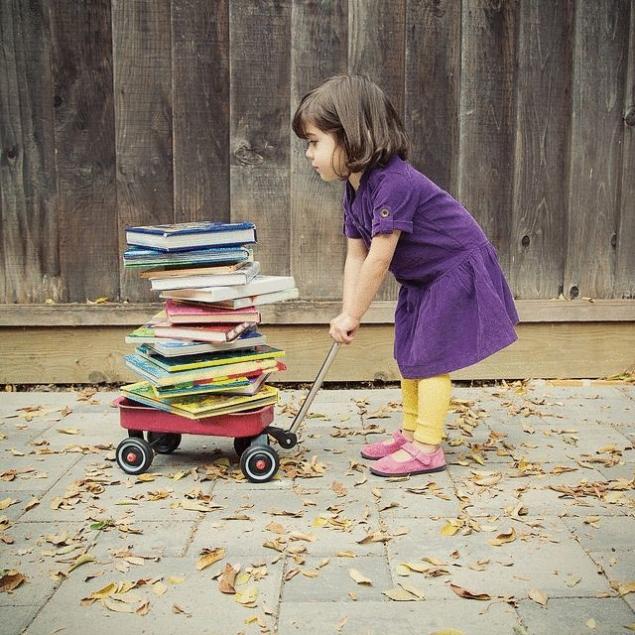462
How to teach a child to independence
The autonomy of the child should be taught from an early age. He helps you with the housework, he needs to receive home responsibility, for which the answer will be he is the only (water the flowers, set the table, take out the garbage, etc. choose what best fits your lifestyle).
Give your child the opportunity to learn to serve themselves: to clean up toys, get dressed, and then collect a portfolio in school. Requirements for the child requirements must be adequate to its age and consistent. Not worth doing for child what he can do himself (except in exceptional cases, for example, if he feels bad). Otherwise he will get used to the fact that after several reminders still you will do everything for him, and just will not respond to your words.
As often as possible involve the child to discuss joint plans, listen to and consider his opinion. The same applies to conflict situations: look for the exit together, reviewing the pros and cons of the proposed solutions, try to come to compromise.

Not "stand over the soul" child through the lessons. The child, accustomed to the fact that his every action controlled by adult, will never learn to work independently. When he began work, go about their business, come to the child only from time to time and see how he's going. If you noticed that he was distracted, calm and friendly tone ask his success.
Encourage questions, but not "chew" his job – he has to learn to understand them. Go to the trick, let the child explain to you how they did a similar assignment in class – you were a first-grader so long that you can't quite remember the school requirements. The strange, controversial way, need a synonym search with your child in the dictionary is, on the one hand, serve as a change of activity, and on the other, encourage your child to use reference books.
6 – 7-year-old child is rarely able to organize their activities to help him work schedule and a list of upcoming actions, written and oral reminders.
– Remember that 6 – to 7-year-old children physiologically are not ready to sit still, performing monotonous work, so be sure to provide the child the possibility of frequent change of activity.
– Easily bore the child it is recommended to use by dividing one job into two or three 10-15 minutes each, and take small breaks between them, during which he will be able to move.
– If the child is not able to join in the work, start with the easy and interesting tasks and challenging place to be for later.
– Tune in to successful and quick homework child will help the type of activity that it a more interesting and better he gets.
– Develop a child's sense of time in everyday life, offering it to estimate how much time it will take a particular action (for example, how much time the train goes from station to station, etc.).
– If the house is set to learn poetry, take lessons from this job. Have a child read the poem twice aloud, expressive. Discuss what this poem, again, read. And then, he will try 2-3 times to read a poem from memory, if necessary, looking at the book. Then do all the other tasks, and return to the poem at the end.
– Equip the child a permanent workplace, where it is easy and fun to do. In any case do not let him sit down for the lessons with the TV, radio, computer, possibly create at the time of issuance D/S a calm, quiet environment.
– Collect a portfolio of first-grader must not to forget anything he will help you list items.
A note to parents and some performance highlights:
Wake the baby: waking up, he needs to see your smile and hear the gentle voice;
do not hurry the child: to calculate the time – your task
don't send kid to school without Breakfast;
wish the kid good luck, encourage him;
meet the child after school is calm, forget the phrase, " What did you get today?", interested in the events of school life, friends;
talk with your child caring, approving tone;
when a child speaks, listen carefully, do not interrupt him;
in the conversation more and more call objects, their attributes and actions with them;
encourage the child's desire to ask questions, his curiosity, inquisitiveness, and imagination;
often praise your child;
encourage play with other children;
make sure that the child was a new experience, which he could tell;
encourage the child with you was doing something around the house;
play a variety of games, including outdoors in the ball game;
do not hurry to put a child for lessons – it requires 2 – 3 hours of rest ( sleep, walk);
remember that after 15-20 minutes of training, you need to do 10-15 minute outdoor recess;
the lessons that are set for the weekend better to do on a Friday or Saturday, because the recovery of the body requires at least one day;
keep in mind that during the school year there are critical periods when learning is harder, faster fatigue occurs, reduced efficiency: this is the first 4-6 weeks of the end of the 2nd quarter, the first week after the holidays, the middle of the 3 quarter;
don't forget that children love to listen to a bedtime story; gentle stroking calms them down, helps to relieve stress, calm sleep; not remembering the bedtime troubles, not to find out the relationship;
compile with the child a day regimen and try to stick to it.
source: karpachoff.com
Source: /users/1077
Give your child the opportunity to learn to serve themselves: to clean up toys, get dressed, and then collect a portfolio in school. Requirements for the child requirements must be adequate to its age and consistent. Not worth doing for child what he can do himself (except in exceptional cases, for example, if he feels bad). Otherwise he will get used to the fact that after several reminders still you will do everything for him, and just will not respond to your words.
As often as possible involve the child to discuss joint plans, listen to and consider his opinion. The same applies to conflict situations: look for the exit together, reviewing the pros and cons of the proposed solutions, try to come to compromise.

Not "stand over the soul" child through the lessons. The child, accustomed to the fact that his every action controlled by adult, will never learn to work independently. When he began work, go about their business, come to the child only from time to time and see how he's going. If you noticed that he was distracted, calm and friendly tone ask his success.
Encourage questions, but not "chew" his job – he has to learn to understand them. Go to the trick, let the child explain to you how they did a similar assignment in class – you were a first-grader so long that you can't quite remember the school requirements. The strange, controversial way, need a synonym search with your child in the dictionary is, on the one hand, serve as a change of activity, and on the other, encourage your child to use reference books.
6 – 7-year-old child is rarely able to organize their activities to help him work schedule and a list of upcoming actions, written and oral reminders.
– Remember that 6 – to 7-year-old children physiologically are not ready to sit still, performing monotonous work, so be sure to provide the child the possibility of frequent change of activity.
– Easily bore the child it is recommended to use by dividing one job into two or three 10-15 minutes each, and take small breaks between them, during which he will be able to move.
– If the child is not able to join in the work, start with the easy and interesting tasks and challenging place to be for later.
– Tune in to successful and quick homework child will help the type of activity that it a more interesting and better he gets.
– Develop a child's sense of time in everyday life, offering it to estimate how much time it will take a particular action (for example, how much time the train goes from station to station, etc.).
– If the house is set to learn poetry, take lessons from this job. Have a child read the poem twice aloud, expressive. Discuss what this poem, again, read. And then, he will try 2-3 times to read a poem from memory, if necessary, looking at the book. Then do all the other tasks, and return to the poem at the end.
– Equip the child a permanent workplace, where it is easy and fun to do. In any case do not let him sit down for the lessons with the TV, radio, computer, possibly create at the time of issuance D/S a calm, quiet environment.
– Collect a portfolio of first-grader must not to forget anything he will help you list items.
A note to parents and some performance highlights:
Wake the baby: waking up, he needs to see your smile and hear the gentle voice;
do not hurry the child: to calculate the time – your task
don't send kid to school without Breakfast;
wish the kid good luck, encourage him;
meet the child after school is calm, forget the phrase, " What did you get today?", interested in the events of school life, friends;
talk with your child caring, approving tone;
when a child speaks, listen carefully, do not interrupt him;
in the conversation more and more call objects, their attributes and actions with them;
encourage the child's desire to ask questions, his curiosity, inquisitiveness, and imagination;
often praise your child;
encourage play with other children;
make sure that the child was a new experience, which he could tell;
encourage the child with you was doing something around the house;
play a variety of games, including outdoors in the ball game;
do not hurry to put a child for lessons – it requires 2 – 3 hours of rest ( sleep, walk);
remember that after 15-20 minutes of training, you need to do 10-15 minute outdoor recess;
the lessons that are set for the weekend better to do on a Friday or Saturday, because the recovery of the body requires at least one day;
keep in mind that during the school year there are critical periods when learning is harder, faster fatigue occurs, reduced efficiency: this is the first 4-6 weeks of the end of the 2nd quarter, the first week after the holidays, the middle of the 3 quarter;
don't forget that children love to listen to a bedtime story; gentle stroking calms them down, helps to relieve stress, calm sleep; not remembering the bedtime troubles, not to find out the relationship;
compile with the child a day regimen and try to stick to it.
source: karpachoff.com
Source: /users/1077
























